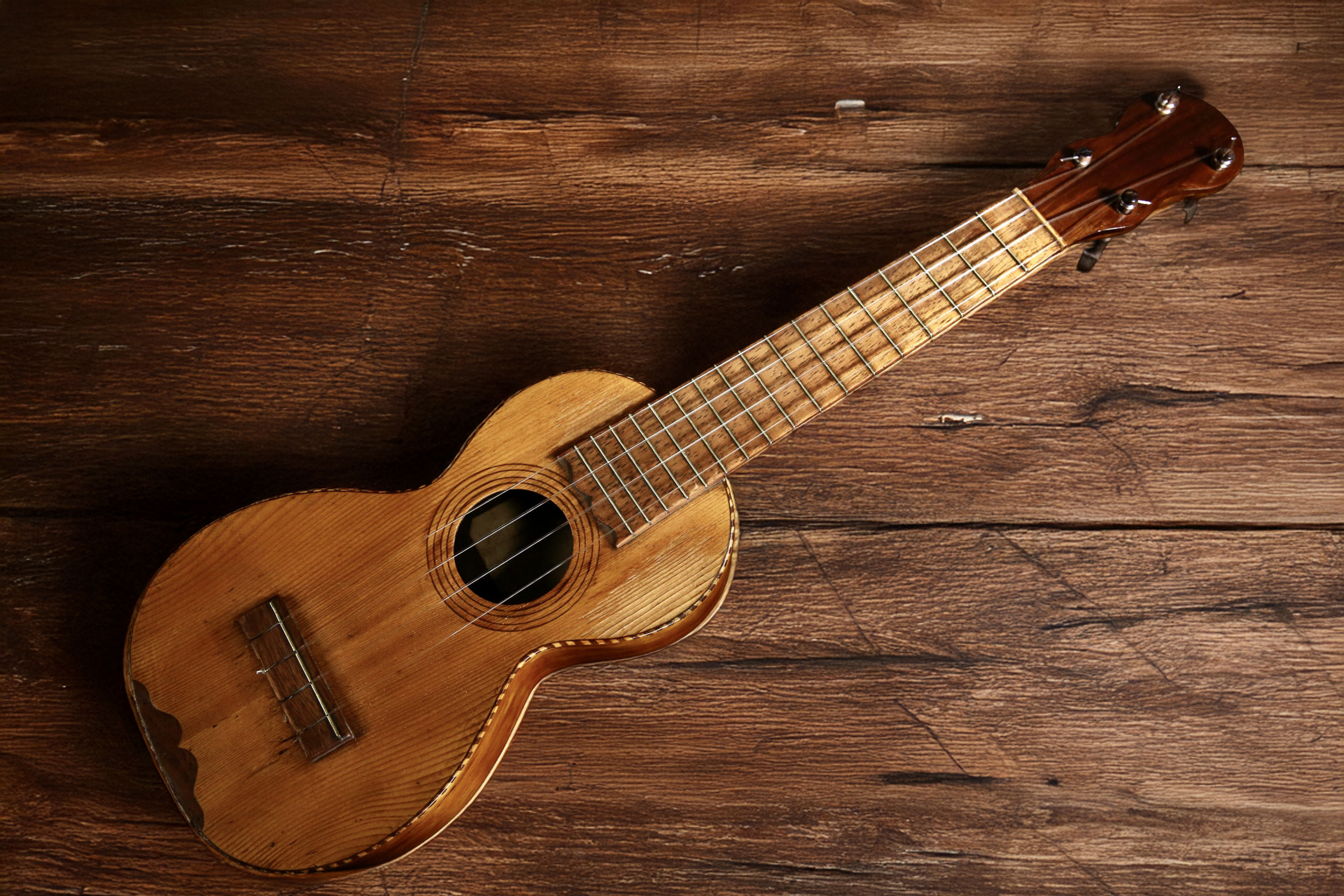The Ukulele Isn't (Entirely) Hawaiian: The Secret Story of Its Journey
Every time I ask a customer, "Where does the ukulele come from?" the answer is always Hawaii. I smile because I know that behind that simple question lies an incredible story, an adventure that crosses oceans.
When we think of the ukulele, our minds immediately fly to Hawaii. Beaches, palm trees, floral shirts... right? Of course! But what if I told you that the heart of our little four-stringed friend began beating on another island, much closer to home, in the middle of the Atlantic Ocean?
Welcome to Madeira, the true cradle of the ukulele.
Yes, you read that right. The ancestor of the ukulele is a small Portuguese instrument called the machete de braga (or simply machete). It was the people's instrument in Madeira: small, lively, and perfect for accompanying songs and dances after a long day's work.

So How Did It Cross the World?
As is often the case in the best stories, it all began out of necessity. Towards the end of the 19th century, Madeira was going through a severe economic crisis. Meanwhile, the Hawaiian sugarcane plantations were in desperate need of workers. And so, thousands of courageous Portuguese people boarded steamships for a four-month journey in search of a better life, bringing only a few things with them: hope, memories, and, of course, their beloved machetes.
The Arrival: Music, First and Foremost
Picture the scene: after a 12,000-mile voyage, the ship Ravenscrag finally enters Honolulu's harbor in August 1879. The air is a mix of relief and excitement. One passenger, a young man named João Fernandes, isn't thinking about his luggage. He borrows a machete from a friend and, still on the ship's deck, begins to play and sing to celebrate the end of the journey.

The Hawaiians, who already had a rich musical culture and a love for stringed instruments, were captivated. They saw that little instrument and fell in love with it instantly. It was small, affordable, easy to carry around, and above all, it spread a contagious joy.
From Machete to Ukulele: A New Identity
Within just a few years, the immigrant Portuguese woodworkers (the legendary Nunes, Dias, and Santo) began building the first instruments directly in Hawaii, using the magnificent local wood, Koa. The instrument's shape changed slightly, it adopted a different tuning, and most importantly, it changed its name.

It was no longer the Portuguese machete. It had become something new, something unique. It had become the ukulele, the voice of Hawaii.
This is why your ukulele has such a special soul. It's an instrument that carries a story of courage, travel, and integration. It teaches us that music has no borders and that sometimes, the most beautiful things can be born from hardship.
The next time you play it, think about that long journey. And if you want to find out how this instrument got its strange name, don't miss our next article!


Comments (0)